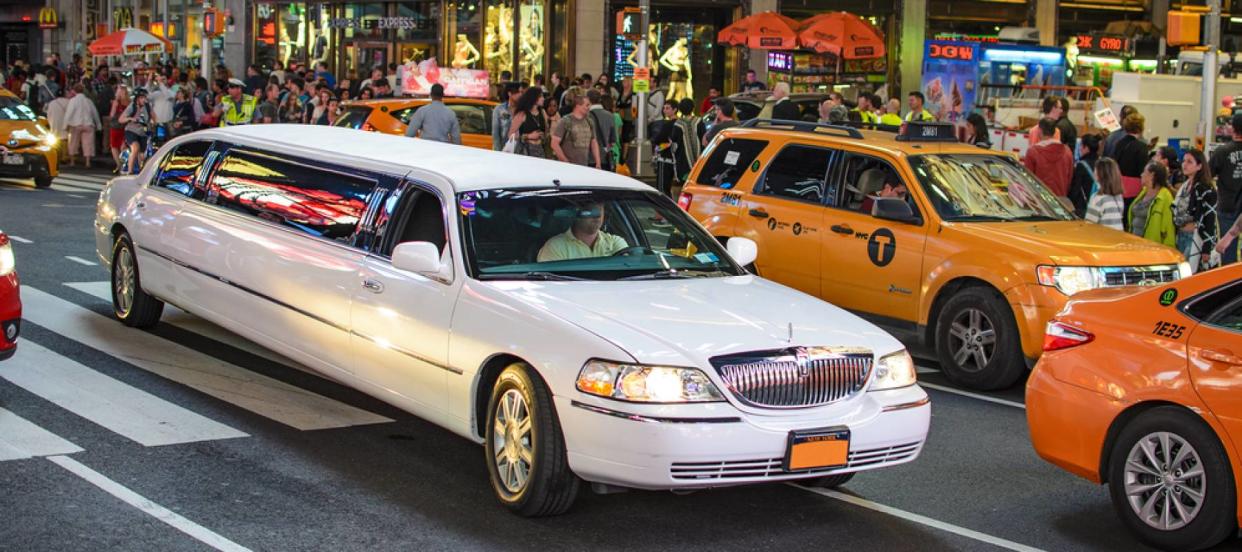‘Tax version of a colonoscopy’: New York cracks down on wealthy out-of-state residents avoiding taxes

New York is home to a substantial number of millionaires, yet there has been a notable exodus in recent years.
Data from the New York State Department of Taxation and Finance indicates that 1,326 millionaires left the state in 2019. This trend intensified during the COVID-19 pandemic, with 3,303 millionaires departing in 2020. The outflow persisted in the following years, with 2,741 millionaires leaving in 2021 and another 2,338 in 2022.
Don't miss
Commercial real estate has beaten the stock market for 25 years — but only the super rich could buy in. Here's how even ordinary investors can become the landlord of Walmart, Whole Foods or Kroger
Cost-of-living in America is still out of control — use these 3 'real assets' to protect your wealth today, no matter what the US Fed does or says
These 5 magic money moves will boost you up America's net worth ladder in 2024 — and you can complete each step within minutes. Here's how
People relocate for various reasons, but there's speculation that high taxes are driving the wealthy out of New York.
New York's personal income tax rates range from 4% to 10.9%. In contrast, Florida, which does not impose a personal income tax, has seen the largest net influx of former New York residents of all the states.
However, merely changing your address might not be enough to escape the tax burdens of the Empire State.
According to a new Bloomberg report, New York’s Department of Taxation and Finance employs 300 auditors specifically for residency audits, and they are “notorious for their thoroughness.” These investigations determine whether individuals have correctly declared themselves as full-time, part-time, or nonresidents for income tax purposes.
Undergoing such an audit is not a fun experience, as tax attorney Mark Klein explained to Bloomberg, “We always tell people the tax audit from New York is like the tax version of a colonoscopy.”
“I’ve had cases that have hinged on a single dog,” Klein recalled. “And I had a case once that was based on the fact that the person moved their Peloton bicycle to Florida.”
Every minute counts
According to the New York State Department of Taxation and Finance, if an individual maintains "a permanent place of abode in New York State for substantially all of the taxable year and spend 184 days or more in New York State during the taxable year,” they are classified as a New York resident for income tax purposes. The department also notes that for this purpose, “any part of a day is a day.”
Read more: 'Baby boomers bust': Robert Kiyosaki warns that older Americans will get crushed in the 'biggest bubble in history' — 3 shockproof assets for instant insurance now
Bloomberg highlights that if an individual is driving from New Jersey to Connecticut and exits the highway in New York for lunch, that stop counts as an entire day spent in New York.
Jonathan Mariner is one of the people who relocated from New York from Florida. After getting his own residency audit from New York, he created an app called TaxDay, which monitors users’ locations to ensure they do not exceed the number of days that would trigger residency status.
“Even though you have a Florida driver’s license, Florida voting record, Florida home, it does not matter,” Mariner told Bloomberg. “You could be on vacation in New York and they’ll pull you back in.”
There’s a reason why New York is cracking down on wealthy out-of-state residents avoiding taxes: The loss of high earners can impact the state’s income tax revenue.
In an op-ed earlier this year, New York State Comptroller Thomas P. DiNapoli and Heather Briccetti Mulligan, president and CEO of the Business Council of New York State, highlighted the state’s dependence on these high earners for substantial income tax contributions.
“[Personal income tax] is the largest state tax revenue, accounting for more than $60 billion in 2021, and a small set of filers have an outsized impact on revenues. Those with incomes above $1 million were just 1.6% of all filers, but comprised 44.5% of the total liability in 2021,” they wrote.
What to read next
Jeff Bezos and Oprah Winfrey invest in this asset to keep their wealth safe — you may want to do the same in 2024
'It's not taxed at all': Warren Buffett shares the 'best investment' you can make when battling rising costs — take advantage today
Car insurance premiums in America are through the roof — and only getting worse. But 5 minutes could have you paying as little as $29/month
This article provides information only and should not be construed as advice. It is provided without warranty of any kind.
